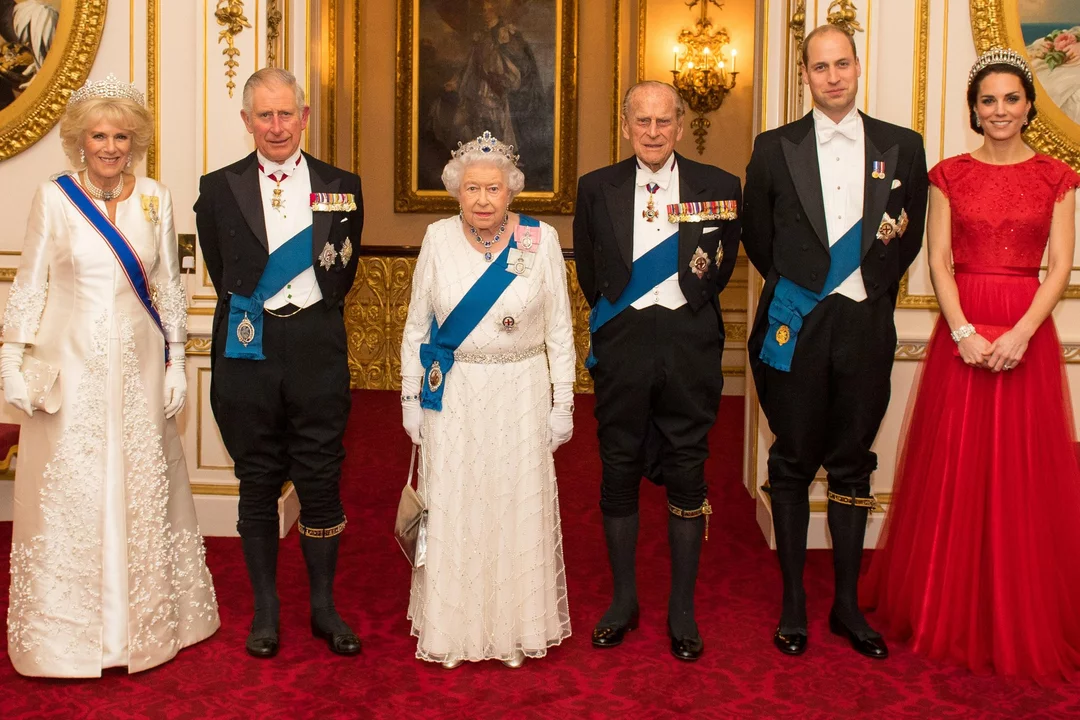Understanding the Concept of Divine Ownership
In many spiritual and religious traditions, it is believed that all the riches of the world ultimately belong to a higher power – God, the Universe, or whatever one chooses to call it. This idea is not as far-fetched as it may seem at first glance. After all, the vast majority of the world's wealth and resources were created by forces beyond human control. The Earth's minerals, for example, were formed over millions of years through geological processes, while the energy we harness from fossil fuels is the result of the slow decomposition of ancient plants and animals. In this context, it is easy to see why some people might argue that all riches truly do belong to God.
But what does this really mean in practice? For the erstwhile royal family, who have long been stewards of their people's wealth and well-being, this belief carries significant implications. In this article, we will explore the concept of divine ownership, its historical roots, and how it shapes the way we think about wealth and power today.
The Historical Roots of Divine Ownership
Throughout history, many societies have recognized the idea that wealth and power ultimately come from a higher source. In ancient Egypt, for example, the pharaohs were believed to be divine beings who ruled on behalf of the gods. Their immense wealth, therefore, was seen as a direct manifestation of divine favor. Similarly, in medieval Europe, kings and queens were thought to rule by divine right, meaning that their power and authority were granted to them by God.
This belief in divine ownership has persisted in various forms throughout the centuries, even as the world has become more secular and democratic. Today, many people still see the abundance they enjoy as a blessing from a higher power, whether they attribute it to God, the Universe, or some other spiritual force. This perspective can be a source of comfort and gratitude, but it can also raise questions about the distribution of wealth and the responsibilities that come with it.
The Royal Family's Stewardship of Wealth
For the erstwhile royal family, the belief that all riches belong to God has inspired a deep sense of responsibility and stewardship. As the guardians of their people's wealth, they have sought to use it wisely and for the greater good. This has meant investing in public works, such as schools, hospitals, and infrastructure, as well as supporting charitable initiatives that help the most vulnerable members of society.
Of course, the royal family's wealth has also been a source of controversy over the years, with critics questioning the fairness of a system that concentrates so much power and privilege in the hands of a few individuals. However, the family's commitment to divine ownership has, in many ways, served to temper these concerns and ensure that their wealth is used for the benefit of all.
How Divine Ownership Influences Modern Wealth and Power
Although the concept of divine ownership may seem like an antiquated relic of a bygone era, it continues to shape the way we think about wealth and power today. In fact, many of the world's richest individuals and most influential leaders cite their faith or spiritual beliefs as a guiding force in their lives, informing their decisions and motivating their philanthropic efforts.
For example, billionaire entrepreneur and philanthropist Sir Richard Branson has often spoken about the role of spirituality in his life and business, attributing much of his success to a higher power. Similarly, many of the world's most successful CEOs and business leaders are known for their strong religious convictions, which they credit with helping them navigate the challenges of their careers and make a positive impact on the world.
Reconciling Wealth and Spirituality
One of the central challenges of embracing the idea that all riches belong to God is reconciling this belief with the material inequalities that exist in the world today. If all wealth truly is a divine gift, why is it that some people have so much while others have so little? This is a difficult question, and one that has no easy answers.
However, the belief in divine ownership can serve as a powerful reminder of the responsibilities that come with wealth and power. By recognizing that their riches are ultimately not their own, but rather a trust from a higher power, the rich and powerful can be inspired to use their wealth and influence for the greater good, working to create a more just and equitable world for all.
Lessons from the Erstwhile Royal Family
While the concept of divine ownership may be an ancient one, it still has much to teach us today. The erstwhile royal family's belief that all riches belong to God serves as a reminder of the profound responsibility that comes with wealth and power, as well as the importance of using these resources for the betterment of society.
As we navigate the challenges of our modern world, the example set by the royal family can inspire us all to approach our own wealth and resources with a sense of humility, gratitude, and stewardship, recognizing that they are ultimately gifts from a higher power that should be used to create a more just and compassionate world for all.
